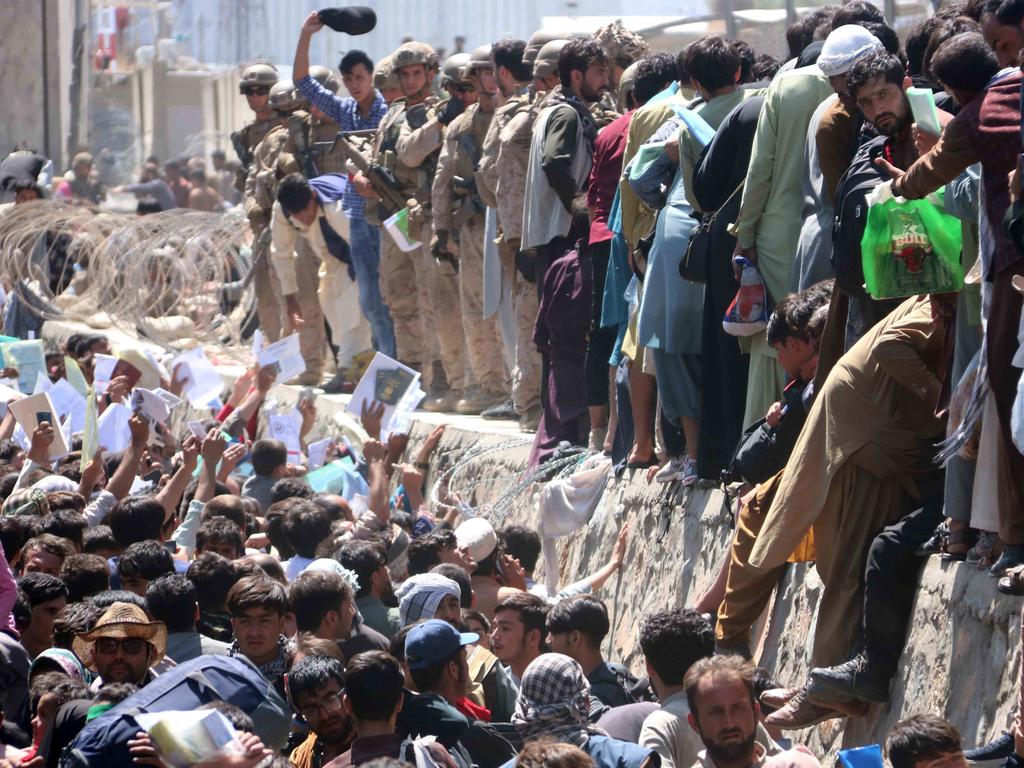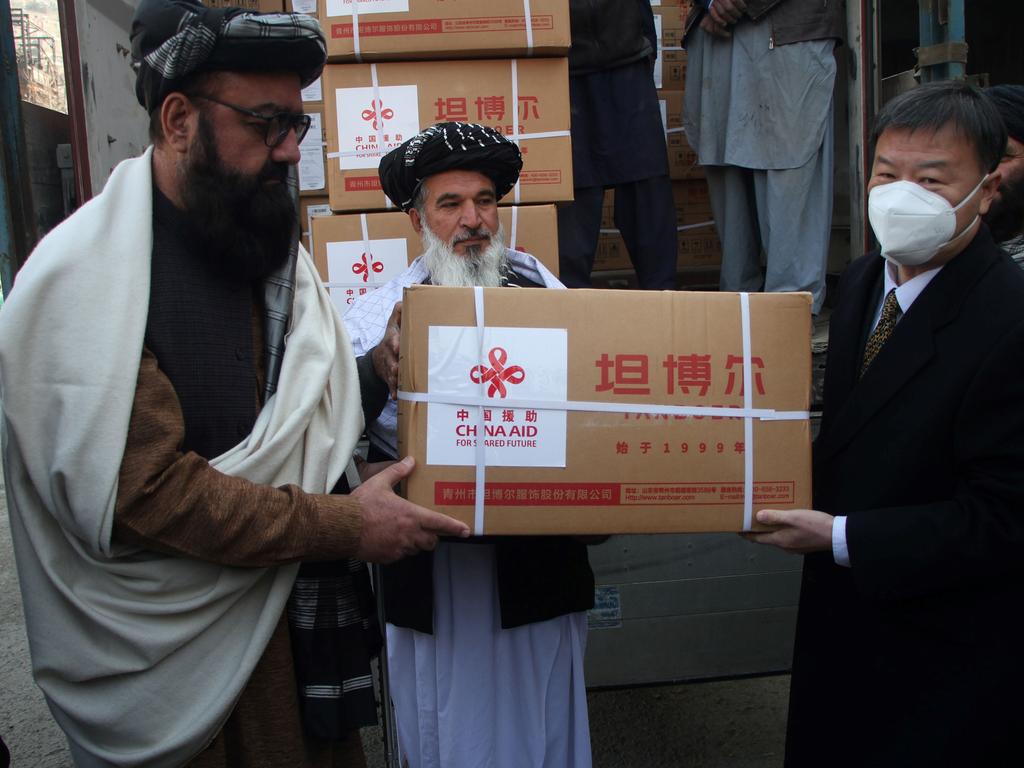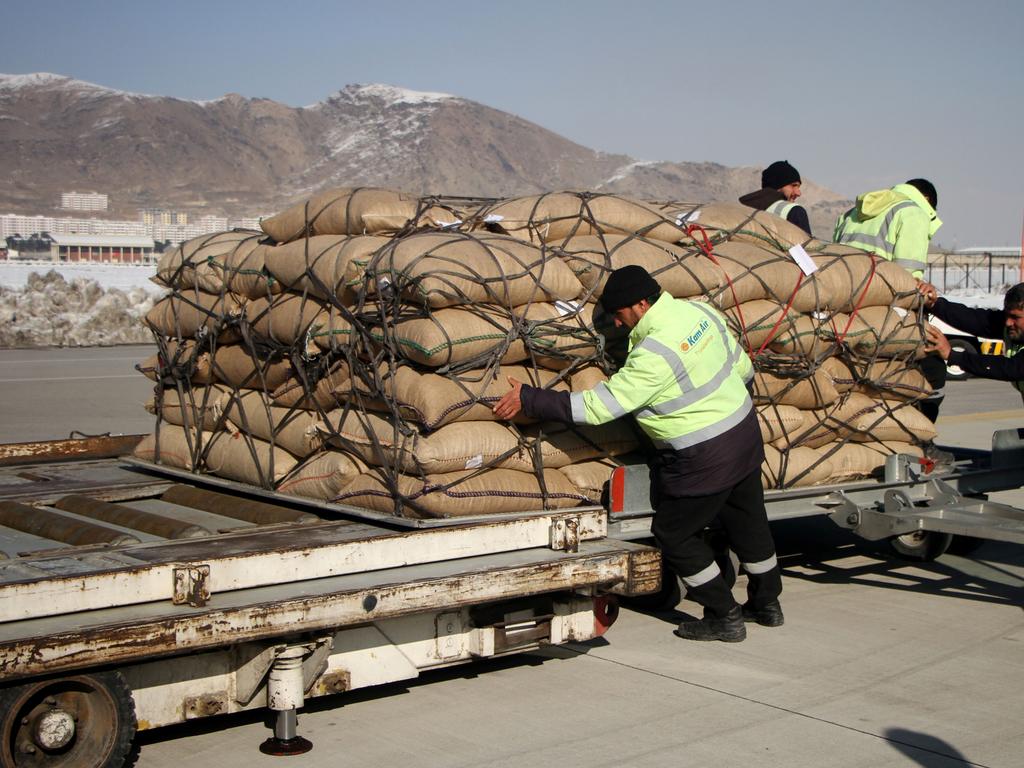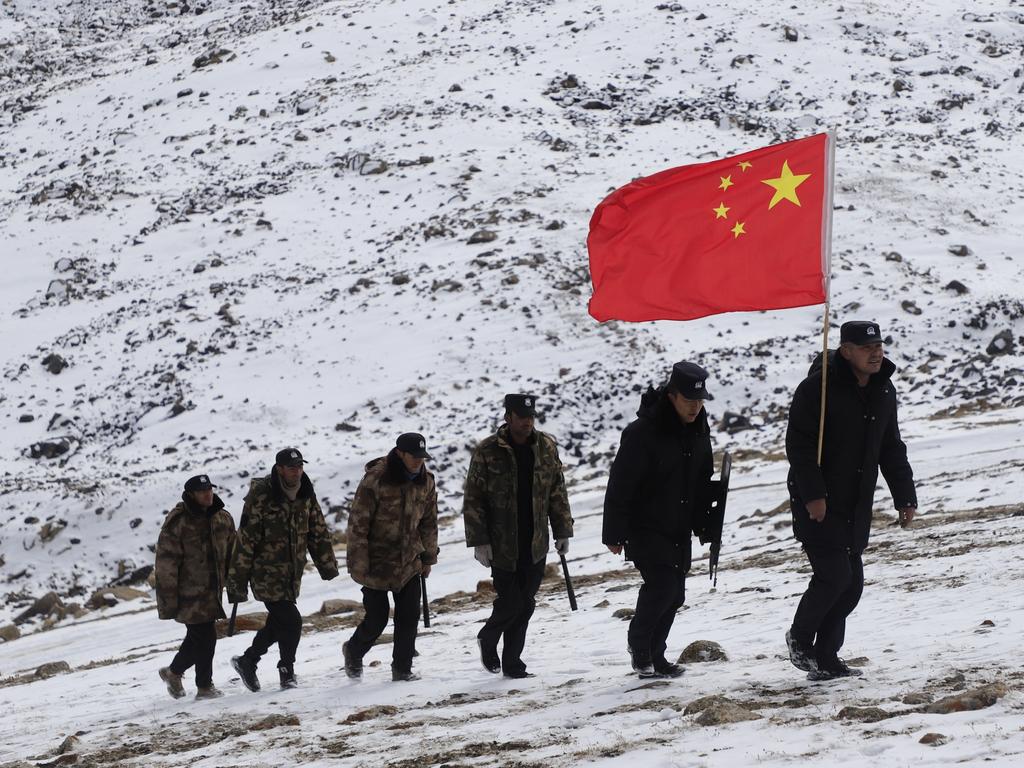China’s Middle East push for global dominance
China’s push for global dominance has seen them make moves in an area many have forgotten about - and it’s sparking alarm about what could happen next.
As the last Australian Defence Force troops flew out of Kabul in August, China was already loading aircraft ready to fly into the Afghan capital with winter supplies.
In a seemingly grand act of altruism and a jab at the Coalition’s chaotic end to its presence in the country, Chinese officials arrived armed with a pledge of further aid and a multi-billion dollar infrastructure plan.
The move followed China formally signing a landmark 25-year $600 billion strategic pact with Iran, holding high level discussions with Saudi Arabia and with ink still drying for an extension to a trade and investment program with Pakistan. Chinese officials were also in Israel, looking to make high tech procurements under a strengthened bilateral pact which includes a Chinese state-owned firm developing and operating a new $2.4 billion seaport in the Israeli city of Haifa, which opened in September.

While China’s intentions have been clear in the Indo Pacific and South China, with minimal noise it has been moving rapidly through the Middle East and it’s got some concerned.
“There is a couple of extremes depending how you want to read it,” said Dr Michael Clarke, senior fellow at the Centre for Defence Research at the Australian Defence College and associate professor at the Crawford School of Public Policy at the Australian National University.
“One it’s all part of a very well thought out, long-term grand strategy and the other is it’s all just focused and opportunistic transactional type arrangements; my view is somewhere in between the two poles.”
Dr Clarke said like any super power, China always acted in China’s interests and if it happened to be counter to Western thinking then it was a bonus.
He said while overall Chinese foreign policy in the Middle East is quite ambitious, it also had a real risk averse element to it so it tended to actually focus on relatively stable partners and regimes such as Iran.
“There is an overarching goal and not just in the Middle East but more broadly, that it’s all been focused on, certainly since the 2000s. China’s main agenda is looking at ways in which they can increase its own strategic and economic influence in the Middle East and foster trends that weaken American primacy in the Middle East and its dominance. Those things that work against the United States, China tends to see as working in its favour.”
Like Iran and access to oil, China also sees potential with Afghanistan not least of all because the Taliban remained shunned by most Western and Arab nations.

Wollongong University Deputy Vice-Chancellor Professor Theo Farrell, one of Britain’s leading Afghanistan war experts who served as an adviser to International Security Assistance Force (ISAF) Command in Kabul, said China’s engagement with Afghanistan was two fold.
First there was the security element and a desire to ensure militant Islamism doesn’t cross into their albeit small border and the other is resources.
“Afghanistan has lots of copper and other strategic minerals that China would love to get its hands on so China is interested in forming good relations with the Taliban, there are good prospects for a Belt and Road (trade) initiative that the Taliban has already indicated they see as a potential positive development and that would enable China to extract critical mineral resources, strategic minerals for its economy. For the Taliban point of view it would of course provide inward investment which is something they desperately need right now.”
But it is also creating a new axis designed to divide the West, most notably the United States and its allies including Australia and like in the Pacific, end any notion of regional primacy.
US political scientist Aaron L. Friedberg, former deputy assistant for national security affairs in the US vice president’s office, said China never wanted to be part of an existing world order as created by the US post World War 2.

He said Xi aimed to transform China into the world’s wealthiest, most technologically advanced, and most militarily powerful nation but in the process he intends to weaken and divide the Western democracies.
Dr Friedberg said issues like the AUKUS pact between Australia, the UK and US was a “significant development” but would not deter China from its ambitious trajectory.
“China is moving towards deepening political repression, expanded economic statism and a more aggressive posture towards the US, its partners and allies,” he said.
“Albeit belatedly and with an as yet insufficient sense of urgency and common purpose, the democracies have begun to face up to these facts and the dangers they pose and to start the painful process of hammering out new policies with which to meet them.”
It is to this end he called his latest book to be released this year (2022) “Getting China Wrong” as he argues the West underestimated China’s desire to reshape the world in ways to extend the longevity of the regime and displace the US as the preponderant global power certainly in East Asia and the Middle East.

The foreign think tank the Lowy Institute in its report in December said China’s upgrading military exchanges with nations like Pakistan and Russia as well as North Korea made it a formidable threat and created conflict risk.
“Whether the emerging balance of military power contributes to deterrence and strategic stability in the Indo-Pacific is an open question,” the Institute said in its 2021 end of year report.
“The depth of hostilities, the breadth of US-China competition and the presence of multiple potential flashpoints means the risk of war is significant.”
More Coverage
Originally published as China’s Middle East push for global dominance




